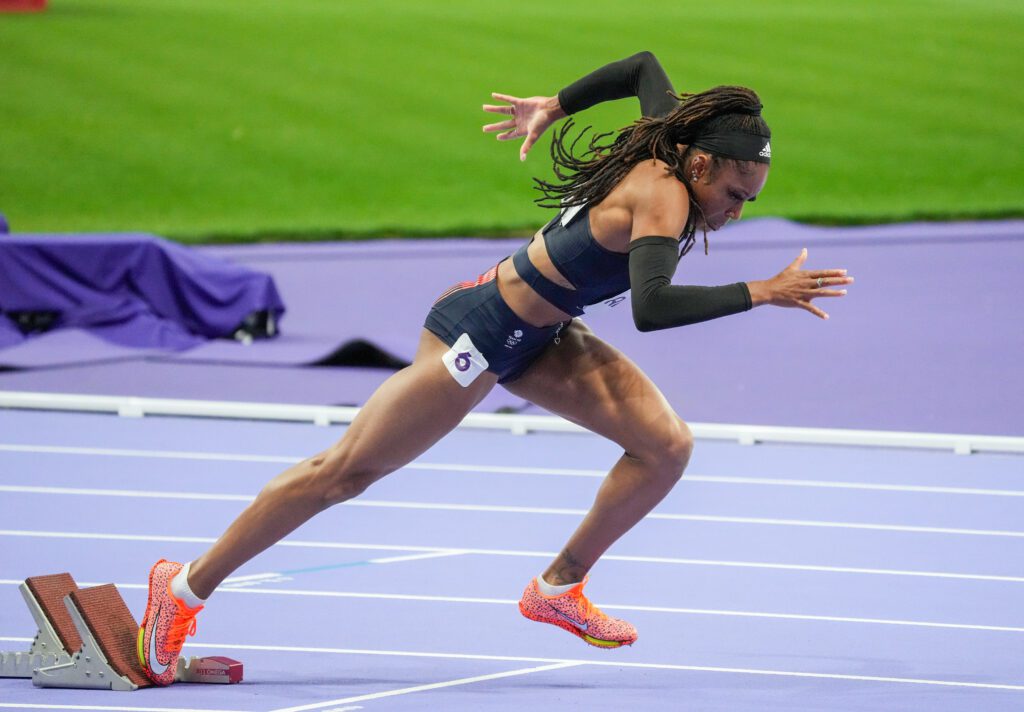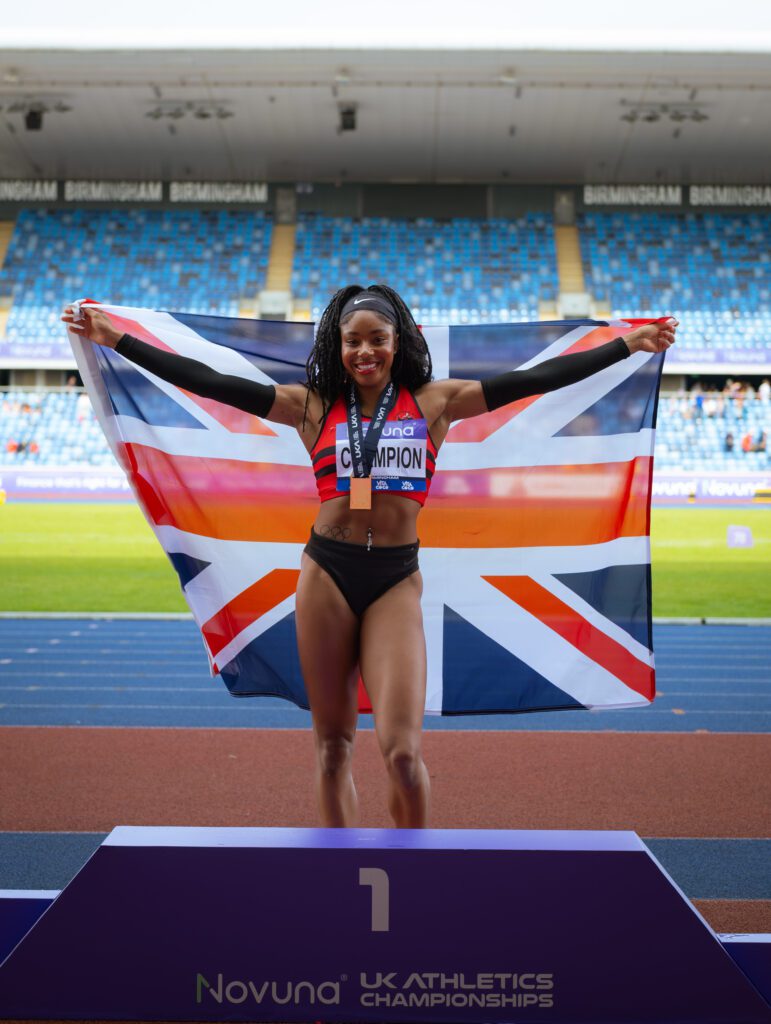At just 24, Amber Anning has already etched her name into British athletics history. A double Olympic bronze medallist and world indoor champion, she’s the new standard-bearer for British 400m running.
Her journey from a five-year-old racing at school sports day in Australia to standing atop global podiums has been one defined not just by speed, but by resilience, patience, and an unshakeable love of competition.
Getting Started
Anning’s story began in the playgrounds of Australia, where athletics first captured her imagination.
“I started athletics at age five at primary school in Australia,” she told Fen Regis Trophies. “I loved doing everything, and I always wanted to medal and stand on the podium.”
When her family returned to England, she joined Brighton & Hove AC at the age of nine. A natural talent across events, Anning ran cross-country and showed early promise as a versatile competitor across a variety of events.
By 14, she had already made headlines by breaking Dina Asher-Smith’s British under-15 300m record. The 400m soon became her calling: “I liked the blend of speed, rhythm, and grit.”
Early Influences
Behind every champion is a network of mentors and role models, and for Anning, two names stand out.
“The 2008 Beijing 400m Olympic Champion Christine Ohuruogu has been my mentor and is someone I still lean on,” she said.
Another key figure was the late Lloyd Cowan, who coached both Ohuruogu and Anning from her teenage years. “His belief in me and his standards still guide what I do, including the bursary I support in his name.”

Breakthrough Moment
Though she impressed early on the domestic stage, it was the US collegiate system that helped sharpen her into a world-class sprinter. “Winning NCAA titles and moving through the collegiate system was big,” she said.
“The real switch flipped in 2024/25: British records, Olympic finals and medals, and then the world indoor title. Those runs told me I belonged with the very best.”
Olympic Bronze
The Paris 2024 Olympics marked her arrival on the global stage. Anchoring the mixed 4×400 relay and helping the women’s team to bronze, both in national-record runs, Anning proved herself under the brightest lights.
“Paris was electric,” Anning said. “Standing on the Olympic podium twice in my first Games made me hungry rather than satisfied.”
World Indoor Gold
If Paris was a breakthrough, Nanjing was redemption. Just months after Olympic success, Anning became Britain’s first women’s 400m world indoor champion.
“Indoors was redemption,” she explained. “After a DQ at the European indoor championships, I went to Nanjing as a favourite but got shoved mid-race.
“I stayed patient, pushed through on the line, and proved I could perform under pressure and bounce back.”
Proudest Achievement
For Anning, success is sweetest when it comes after adversity. “Because of how I responded to the setback before it,” she said. “The world indoor gold and the British 400m record from Paris stand out.
“Together they showed patience, resilience and progression.”

Overcoming Challenges
Her path has not been without setbacks. Missing selection for Tokyo Olympics in 2021 and being disqualified at the European Indoors in 2025 were both painful moments. “Both taught me to reset quickly, stick to the plan with my coach, and use disappointment as fuel rather than baggage,” she reflected.
Preparation is everything for Anning, who combines a scientific approach with a calm race-day mentality.
“I set clear time and medal goals with my coach at the start of the year, write them down, and keep the training consistent and straightforward. On race day, it’s calm execution—trust the work, control the first 200, then commit.
Her background in psychology helps her remain present, and she credits her team — including a physio, nutritionist, sports psychologist, and S&C trainers — for creating the foundation for peak performance.
Despite her glittering CV, Anning is only just getting started. “Outdoor global gold is the big target,” she said with conviction.
“I want to lower the British record again and push into the 48-second territory, then keep stacking medals individually and in relays.”
Advice for the Next Generation
Asked what guidance she’d share with young athletes, Anning stresses the importance of balance and joy.
“Keep it fun early, find a coach who listens, and build a support network as the small things add up.
“Set your goals, be patient, and when setbacks come, treat them as information to move forward, not as part of your identity.
“There will be sacrifices, but if you want it enough, the rewards will compensate for that. The main thing, though, is to keep enjoying.
“It can be hard, but it should still feel good at the end of the day.”
Anning’s rise has already reshaped the British sprinting landscape. With her blend of talent, resilience, and ambition, the 400m world may need to get used to seeing her at the front, because she’s only running faster.
By Aaron Gratton
